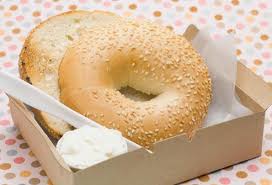Just when you think you’re making all the right food choices, your blood sugar level takes a leap or dive.
Foods and drinks can have an impact you might not expect, and these surprise blood sugar level changes can be harmful (potentially causing low or high levels).
Here are some things you should consider to maintain blood sugar levels:
For people with prediabetes, diabetes, or other conditions that affect blood sugar, diet is a major part of maintaining healthy blood sugar levels.
Although factors like body weight, activity, stress, and genetics also play a role in blood sugar maintenance, following a healthy diet is critical for blood sugar control.
While some foods, including items high in added sugar and refined carbs, can contribute to blood sugar fluctuations, others can optimize blood sugar control while promoting overall health
Don’t let bagels betray you. Counting carbs is a way of life when you have diabetes. Bread can really rack up those carbs, but not all bread is created equal.
Think there’s no difference between a bagel and an English muffin? One plain English muffin has 140 calories and 27 grams of carbohydrates. A bagel that’s 4½ inches in diameter serves up 294 calories and 58 grams of carbs. That’s about as many calories and even more carbs than a glazed donut.
“It’s about portion size. Some bagels are the size of a plate.
A fruit in any other form may be twice as sweet. All fruits have sugar, but did you know that different forms of the same fruit have vastly different amounts?
Read Also: 50 Super Healthy Foods To Eat
Dried fruit packs a sugary punch compared with its fresh counterpart. Ten grapes, which weigh about 1.75 ounces, have 34 calories and 8 grams of sugar. They’re also full of water, which helps fill you up. A 1.5-ounce, single-serving box of raisins packs 129 calories and 15 grams of sugar, but none of the water.
“Without the water, the sugar is more concentrated in dried fruit. And with the smaller size, you’re likely to eat many more of them,” Allweiss says.
Fruit juices are similarly deceptive. A 5-ounce Florida orange has 65 calories, 13 grams of sugar, and 3 grams of fiber. An 8-ounce glass of juice, though, has 112 calories, 24 grams of sugar, and no fiber.
Sports drinks may not be so sporty. They may have a healthy image and do help restore the fluids and electrolytes, such as sodium and potassium, that you can lose during intense exercise. But they have 13 to 19 grams of carbohydrates per 8-ounce serving. This kind of energy replacement is necessary only for workouts lasting more than an hour.
“There are special formulations for people with diabetes who are running marathons or cycling long distances “but for most people [who are not doing those activities], water is best.”
Have a happier happy hour. Alcohol is known for its calories and carbs. “Many people with diabetes think, ‘I’m not going to eat since I’m drinking my calories tonight.
But alcohol can lower blood sugar, and an empty stomach can be dangerous. A single drink can increase the release of insulin in the body, bringing blood sugar down. When blood sugar drops, the body should release glucose to bring it back up. Alcohol can block the release of glucose and keep blood sugar too low.
Read Also: 19 Foods To Help Lower Your Blood Pressure
“People with diabetes, if they are drinking, need to drink healthy. There is a risk of low blood sugar. Make sure you eat something to counteract that alcohol,” she says. “Use calorie-free mixers and drink in moderation.
Aim for balance. Speaking of moderation, having diabetes doesn’t mean you can never have a beer at a ball game or a bagel at breakfast. “Most things can be on the health plan in moderation.
